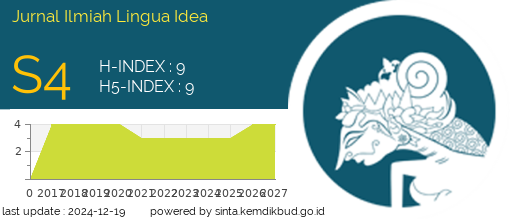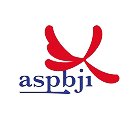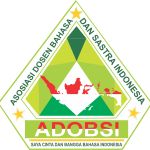Higher Education Teachers' Perception and Use of Project-Based Learning in Teaching English
Abstract
This study aims to examine how English professors perceive adopting project-based learning and examine the difficulties they encounter when doing so in various colleges. All the research subjects used four sources of English language education study programs. The study included all instructors who had used project-based learning in their classes. A questionnaire was used to gather quantitative data for this investigation. The study's findings indicate that English teachers positively view project-based learning. Teachers are eager to integrate Project-Based Learning if they have a favourable opinion quickly. The challenges were finding resources to help students with their projects and running out of time to finish them. The following suggestions urge more significant investigation into potential solutions to overcome project-based learning's adoption challenges, particularly in teaching English.
References
Alotaibi, M. G. (2020). The Effect of Project-Based Learning Model on Persuasive Writing Skills of Saudi EFL Secondary School Students. English Language Teaching, 13(7), 19. https://doi.org/10.5539/elt.v13n7p19
Amin, K. F., Muliadi, & Rahman, A. A. (2021). Implementasi Program MBKM Berbasis IKU-7 (Prodi Pendidikan Bahasa dan Sastra Indonesia). Symtax Literate, 6(2), 1697–1706.
Andanty, F. D. (2020). The Implementation of Project-based Learning Method in Teaching ESP (English for Specific Purposes): Case Study. SELL Journal, 5 (1), 77–84.
Arsyad, M., & Arafah, K. (2020). Kesulitan Guru dalam Mengimplementasikan Model Pembelajaran Berbasis Proyek pada Mata Pelajaran Fisika di SMA Negeri Kota Makassar. 2, 138–141.
Ayu Sukerti, G. N., & Yuliantini, N. (2018). Learning autonomy in writing class: Implementation of project-based learning in english for spesific purposes. Journal of Physics: Conference Series, 953(1). https://doi.org/10.1088/1742-6596/953/1/012101
Bardatillah, A., Nappu, S., & Hamid, R. (2023). Exploring Project-based Learning Model Applied in Writing Activities based on the 2013 Curriculum. International Journal of English Language Studies, 5(1), 71–79. https://doi.org/10.32996/ijels.2023.5.1.8
Dewi, W. S., Febryan, H., Murtiani, & Sari, S. Y. (2022). Need analysis of project-based learning model and portfolio assessment in physics learning. Journal of Physics: Conference Series, 2309(1). https://doi.org/10.1088/1742-6596/2309/1/012086
Direktorat Jenderal Pendidikan Tinggi. (2021). Buku Panduan Indikator Kinerja Utama. Kementerian Pendidikan Dan Kebudayaan, 021, 1–73. http://dikti.kemdikbud.go.id/wp-content/uploads/2021/06/Buku-Panduan-IKU-2021-28062021.pdf
Gai Mali, Y. C. (2016). Project-Based Learning in Indonesian EFL Classrooms: from Theory to Practice. IJEE (Indonesian Journal of English Education), 3(1), 89–105. https://doi.org/10.15408/ijee.v3i1.2651.
Goldma, S. R., Braasch, J. L. G., Wiley, J., Graesser, A. C., & Brodowinska, K. (2012). Comprehending and learning from internet sources: Processing patterns of better and poorer learners. Reading Research Quarterly, 47(4), 356–381. https://doi.org/10.1002/RRQ.027
Gustafsson, J. (2017). Single case studies vs. multiple case studies: A comparative study. Academy of Business, Engineering and Science Halmstad University, Sweden, 1–15. http://www.diva-portal.org/smash/record.jsf?pid=diva2:1064378%0Ahttp://www.diva-portal.org/smash/get/diva2:1064378/FULLTEXT01.pdf
Handini, D., Priandono, T. edy, & Herlina, S. (2023). Ragam Kegiatan Kampus Merdeka. Cendekia
Handrianto, C., & Rahman, M. A. (2018). Project Based Learning: A Review of Literature on its Outcomes and Implementation Issues. LET: Linguistics, Literature and English Teaching Journal, 8(2), 110–129. http://jurnal.uin-antasari.ac.id/index.php
Hasani, A., Hendrayana, A., & Senjaya, A. (2017). Using Project-Based Learning in Writing an Educational Article: An Experience Report. Universal Journal of Educational …. https://eric.ed.gov/?id=EJ1143913
Herniwati, H., Judiasri, M. D., & Funaki, N. (2023). Application of Peer Teaching in Training Students to Teach Japanese (Mogi Jugyou) in Microteaching Courses. Jurnal Lingua Idea, 14(2), 218. https://doi.org/10.20884/1.jli.2023.14.2.7242
Ismuwardani, Z., Nuryatin, A., & Doyin, M. (2019). Implementation of project based learning model to increased creativity and self-reliance of students on poetry writing skills. Journal of Primary Education. https://journal.unnes.ac.id/sju/index.php/jpe/article/view/25229
Kumayas, T. A., & Lengkoan, F. (2024). Advanced English Grammar A Comprehensive Guide for Proficient Language Learners. Lakeisha.
Kuswahyuningsih, K., Giyoto, G., Untari, L., & Bustany, Z. (2023). The Implementation of Project-Based Learning Model through ORAI in Recount Material to Enhance English Speaking Skill. Jurnal Lingua Idea, 14(1), 133. https://doi.org/10.20884/1.jli.2023.14.1.6466
Lombok, E. (2023). Hamzanwadi University, East Lombok, Indonesia. 6, 222–229.
Ma’rifah, U. (2022). The The Implementation of Project Based Learning in EFL Class: Fostering students’ high order thinking and autonomy. DIDAKTIKA : Jurnal Pemikiran Pendidikan, 28(2(1)), 7. https://doi.org/10.30587/didaktika.v28i2(1).4405
Mayer, S. R. T. (1873). “Majesty.” Notes and Queries, s4-XI(271), 200. https://doi.org/10.1093/nq/s4-XI.271.200d
Mayrita, H., & Boavida, T. G. da C. (2023). Academic Experience as Evaluation Material in Online Language Learning. Jurnal Lingua Idea, 14(2), 203. https://doi.org/10.20884/1.jli.2023.14.2.8118
McNess, E., Triggs, P., Broadfoot, P., Osborn, M., & Pollard, A. (2001). The changing nature of assessment in English primary classrooms: Findings from the PACE project 1989-1997. International Journal of Phytoremediation, 29(3), 9–16. https://doi.org/10.1080/03004270185200301
Meng, N., Dong, Y., Roehrs, D., & Luan, L. (2023). Tackle implementation challenges in project-based learning: a survey study of PBL e-learning platforms. Educational Technology Research and Development, 0123456789. https://doi.org/10.1007/s11423-023-10202-7
Norawati, R., & Puspitasari, Y. (2022). The Learning Skills of English as a Foreign Language (EFL) Student-Teachers in Project-based Learning and Case-based Learning. JEELS (Journal of English Education and Linguistics Studies), 9(2), 255–277. https://doi.org/10.30762/jeels.v9i2.512
Nursyahrifa, N., Mukhaiyar, M., & Jufrizal, J. (2019). Textbooks Evaluation: To what Extent Do the English Textbooks Provide Learning to Promote Cognitive Skill? Metathesis: Journal of English Language, Literature, and Teaching, 3(1), 78. https://doi.org/10.31002/metathesis.v3i1.1250
Patak, A. A., Naim, H. A., Said, H., & Asik, N. (2013). Conceptualizing assessment of final project writing in English as a Foreign Language (EFL): an Indonesian context. In Proceedings of Technology
Raraga, A. (2020). Jurnal ilmiah wahana akuntansi. Jurnal Ilmiah Wahana Akuntansi, 15(1), 95–109. https://doi.org/10.5281/zenodo.4305483
Rombepajung, P., & Lengkoan, F. (2024). Writing For General Information. Lakeisha.
Salma, N., & Prastikawati, E. F. (2021). Performance-Based Assessment in the English Learning Process: Washback and Barriers. Getsempena English Education Journal, 8(1), 164–176. https://doi.org/10.46244/geej.v8i1.1305
Saptanto, D. D., Bowo, T. A., & Nurjanah, R. L. (2021). Product Development and Eligibility Assessment of Pictorial Metaplan for Interactive English Teaching in 8Th Grade Junior High School. PHILOSOPHICA Jurnal Bahasa, Sastra, Dan Budaya, 4(2), 74. https://doi.org/10.35473/po.v4i2.826
Sari, F., Rachmawati Syarif, A., & Muflihun, M. (2022). Teacher’s Techniques in Teaching English at Junior High School. Jurnal Pendidikan Dan Pengajaran (JPP), 3(1), 1–8. https://doi.org/10.51454/jpp.v3i1.442
Shepard, L. a. (2000). The role of classroom assessment in teaching and learning. Assessment, 95064(310), 1–12. http://datause.cse.ucla.edu/DOCS/las_rol_2000.pdf
Sukerti, G. N. A. (2019). Fostering Students' Presentation Skill Using Infographic: the Implementation of Project-Based Learning in English for Specific Purposes. IJIET (International Journal of Indonesian Education and Teaching), 3(2), 227–239. https://doi.org/10.24071/ijiet.v3i2.1940
Susanti, A., Rofidah, N., Trisusana, A., & Retnaningdyah, P. (2020). Improving Students’ Writing Skill Through Project Based Learning For EFLStudents. International Journal of English Linguistics, Literature, and Education (IJELLE), 2(2), 102. https://doi.org/10.32585/ijelle.v2i2.700
Syarifah, E. F. (2018). The Implementation of Project-Based Learning To Promote Students’ Motivation In Efl Writing Class. In ELT in Focus (Vol. 1, Issue 1, pp. 40–44). LPPM Universitas Singaperbangsa Karawang - Research Department in Indonesia University. https://doi.org/10.35706/eltinfc.v1i1.1318
Thobroni, M. (2015). Belajar dan Pembelajaran: Teori dan Praktik. Ar-Ruzz Media.
Thuy Linh, L. (2021). Monitoring sheet-solution to overcome free-riding in collaborative learning in writing class. Vinh University Journal of Science, 50(2B), 55–68. https://doi.org/10.56824/vujs.2021ed20
Wimolmas, R. (2018). Project-Based Learning (PBL) in EFL Classes of an English Program At a Thai Secondary School: Student and Teacher Views. Journal of Humanities and Social Sciences Valaya Alongkorn, 13(3), 99–108.

This work is licensed under a Creative Commons Attribution-ShareAlike 4.0 International License.
Authors who publish with Jurnal Ilmiah Lingua Idea agree to the following terms:
- Authors retain copyright and grant the journal right of first publication with the work simultaneously licensed under a Creative Commons Attribution License (CC BY-SA 4.0) that allows others to share the work with an acknowledgment of the work's authorship and initial publication in this journal.
- Authors are able to enter into separate, additional contractual arrangements for the non-exclusive distribution of the journal's published version of the work (e.g., post it to an institutional repository or publish it in a book), with an acknowledgment of its initial publication in this journal.
- Authors are permitted and encouraged to post their work online (e.g., in institutional repositories or on their website) prior to and during the submission process, as it can lead to productive exchanges, as well as earlier and greater citation of published work.





















.png)




_.png)


